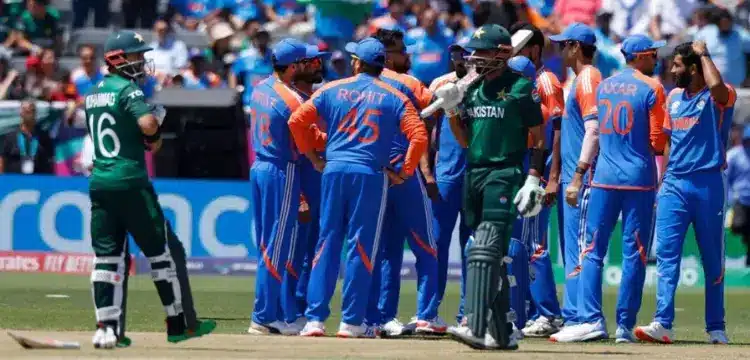In a thrilling, low-scoring Group A match at the Nassau County International Cricket Stadium, India secured a narrow six-run victory over Pakistan in their second match of the T20 World Cup 2024. Despite a promising start, Pakistan’s performance faltered, leading to a disappointing defeat, as reflected in Captain Babar Azam’s post-match analysis.
Pakistan began the chase confidently but quickly encountered setbacks. Babar Azam, after scoring just 13 runs, fell to Jasprit Bumrah, which put immediate pressure on the team. Mohammad Rizwan’s determined efforts kept hope alive, but Pakistan struggled to build momentum and capitalize on their early advantage.
Reflecting on the match, Babar Azam pointed out that the team failed to bat well in the first six overs, which set a challenging tone for the rest of the innings. “I think they bowled well after 10 overs. We were chasing 120, we were running a ball for the first 10 overs, but back to back wickets, and then [we left too much in the end],” Babar commented.
Read More: Azam Khan Excluded from Practice Ahead of Pakistan vs India Match
He emphasized that the game plan was straightforward: to play normally, rotate the strike, and aim for five to six runs per over. However, the team struggled with too many dot balls, lost three quick wickets, and ultimately couldn’t recover. “We were not up to the mark in the first six overs, we targeted 40 to 45 runs. We have not capitalised properly,” Babar admitted.
The pitch, according to Babar, seemed decent with the ball coming nicely, although it was a bit slow with some unpredictable bounce, typical of a drop-in pitch.
The match reached a pivotal moment when Bumrah clean-bowled Rizwan, who had scored 31 runs and appeared poised to lead Pakistan to victory. Rizwan’s departure significantly diminished Pakistan’s chances, resulting in a final score of 113-7 in 20 overs. Bumrah was the star bowler for India with three wickets, supported by Hardik Pandya with two, and Arshdeep Singh and Axar Patel with one each.
India’s disciplined bowling and Pakistan’s inability to capitalize on key moments ultimately decided the match. As the T20 World Cup progresses, both teams will need to reflect on their performances and strategize for the upcoming challenges.











